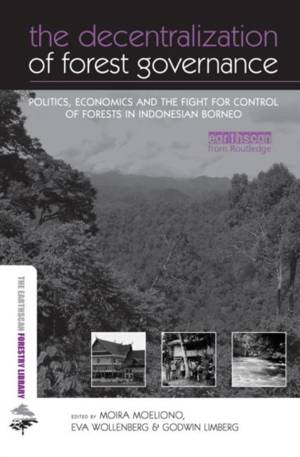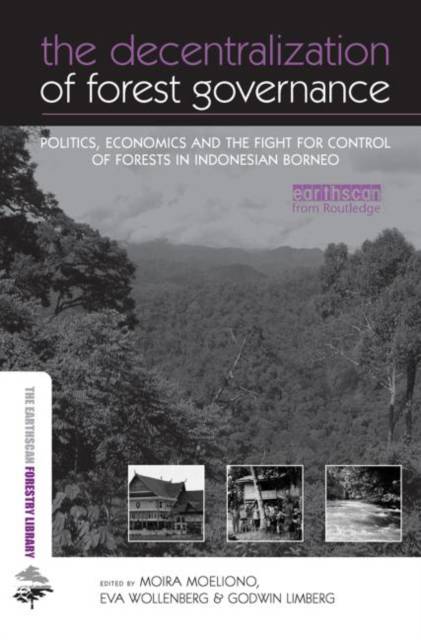
- Retrait gratuit dans votre magasin Club
- 7.000.000 titres dans notre catalogue
- Payer en toute sécurité
- Toujours un magasin près de chez vous
- Retrait gratuit dans votre magasin Club
- 7.000.0000 titres dans notre catalogue
- Payer en toute sécurité
- Toujours un magasin près de chez vous
The Decentralization of Forest Governance
Politics, Economics and the Fight for Control of Forests in Indonesian Borneo
Moira Moeliono, Godwin LimbergDescription
The devolution of control over the world's forests from national or state and provincial level governments to local control is an ongoing global trend that deeply affects all aspects of forest management, conservation of biodiversity, control over resources, wealth distribution and livelihoods. This powerful new book from leading experts provides an in-depth account of how trends towards increased local governance are shifting control over natural resource management from the state to local societies, and the implications of this control for social justice and the environment. The book is based on ten years of work by a team of researchers in Malinau, Indonesian Borneo, one of the world's richest forest areas. The first part of the book sets the larger context of decentralization's impact on power struggles between the state and society. The authors then cover in detail how the devolution process has occurred in Malinau, the policy context, struggles and conflicts and how Malinau has organized itself. The third part of the book looks at the broader issues of property relations, conflict, local governance and political participation associated with decentralization in Malinau. Importantly, it draws out the salient points for other international contexts including the important determination that 'local political alliances', especially among ethnic minorities, are taking on greater prominence and creating new opportunities to influence forest policy in the world's richest forests from the ground up. This is top-level research for academics and professionals working on forestry, natural resource management, policy and resource economics worldwide.
Published jointly with CIFOR.
Spécifications
Parties prenantes
- Auteur(s) :
- Editeur:
Contenu
- Nombre de pages :
- 328
- Langue:
- Anglais
- Collection :
Caractéristiques
- EAN:
- 9780415853033
- Date de parution :
- 12-12-13
- Format:
- Livre broché
- Format numérique:
- Trade paperback (VS)
- Dimensions :
- 156 mm x 233 mm
- Poids :
- 452 g

Les avis
Nous publions uniquement les avis qui respectent les conditions requises. Consultez nos conditions pour les avis.






